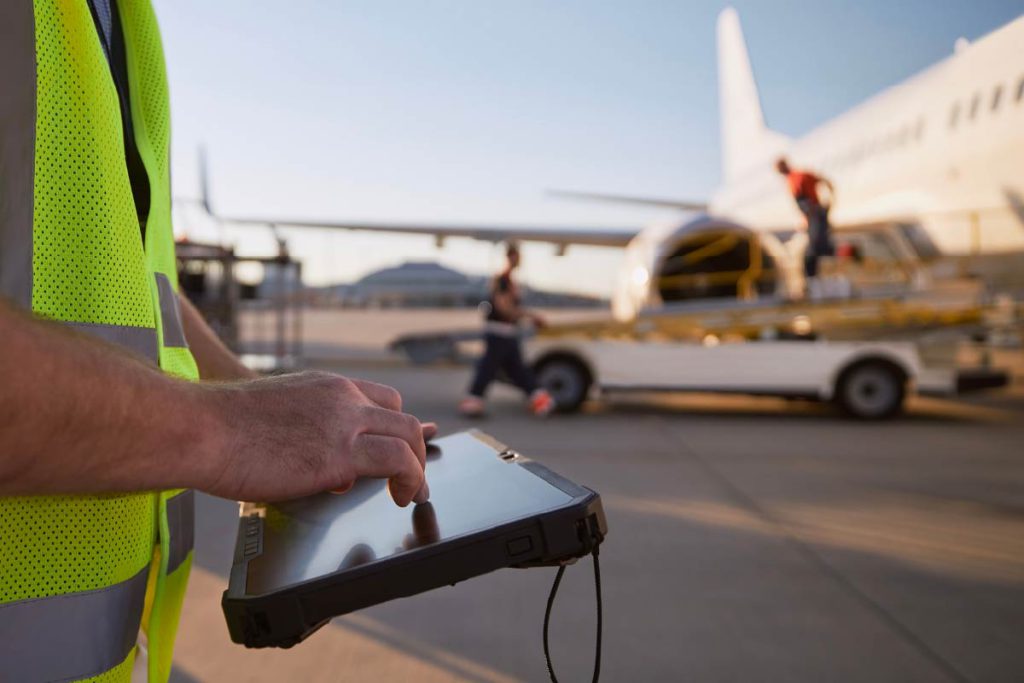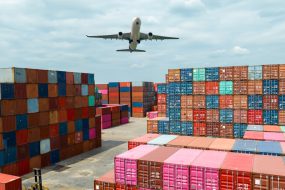The aviation industry never stands still – and neither does the complex world of airline logistics. From moving passengers across continents to ensuring cargo arrives on time and in top condition, the demands on airline logistics companies are higher than ever.
To keep pace, the industry is embracing digital transformation, smarter supply chains, and more sustainable practices. These innovations are not only boosting efficiency and cutting costs but also elevating the customer experience. Here’s how the future of aviation support in global logistics is taking shape.
Related Reading: The hidden costs of poor airline supply planning
Airline Logistics Companies: At the Centre of Change
Airline logistics companies play a pivotal role in managing transportation, supply chains, and cargo management. Their task is to keep operations running smoothly in an industry where the smallest delay can have wide-reaching impacts.
The shift towards technology-led solutions is key. By leveraging data, automation, and advanced systems, these companies are improving operational efficiency, streamlining decision-making, and enhancing service delivery.
Smarter Airline Supply Chain Management
The supply chain is the backbone of aviation. Without efficient airline supply chain management, delays, higher costs, and customer dissatisfaction can quickly follow. Fortunately, new technologies are making supply chains more transparent and resilient.
- Real-time tracking systems: Allowing airlines to monitor cargo location and condition at every stage, reducing the risk of delays or losses.
- Blockchain technology: Providing a secure, transparent way to store and share data across the supply chain. This boosts trust between airlines, suppliers, and customers while reducing errors and fraud.
With these innovations, airlines can ensure smoother operations while meeting growing customer expectations for visibility and reliability.
Related Reading: Is outdated tech grounding your aviation supply chain?
Rethinking Cargo Management
Cargo remains a major revenue driver for airlines, so innovation in this area is crucial. The latest developments in freight handling and storage are designed to improve speed, accuracy, and product integrity.
- Automated cargo handling systems: Robotics and AI are speeding up loading and unloading, cutting reliance on manual labour and reducing the risk of damage.
- Smart warehouses: Equipped with IoT sensors, these facilities monitor conditions like temperature and humidity, ensuring sensitive goods are stored under ideal conditions. This is particularly vital for pharmaceuticals, fresh produce, and other perishable cargo.
By adopting these technologies, airlines can reduce waste, protect valuable goods, and build stronger relationships with customers who depend on reliable freight shipping.
Aviation Support: Keeping Operations Moving
Behind the scenes, aviation support services such as ground handling, maintenance, and crew management keep everything on schedule. Innovations here are making a big impact:
- Automated ground handling: Self-driving vehicles and automated baggage systems are cutting aircraft turnaround times, enabling airlines to operate more flights with the same resources.
- Predictive maintenance: Using machine learning and analytics, airlines can anticipate when equipment might fail and fix it before it causes disruption. This not only improves reliability but also enhances safety – the top priority in aviation.
Together, these innovations are reducing downtime, cutting costs, and helping airlines respond more flexibly to changing demand.


Building a Sustainable Future
Sustainability is now a central focus for the aviation sector. Airlines and logistics providers are under pressure to reduce their environmental footprint – and many are already making strides:
- Sustainable aviation fuels (SAFs) are being trialled and adopted to cut carbon emissions.
- Energy-efficient aircraft are entering service, designed to consume less fuel per flight.
- Eco-friendly ground operations, including electric service vehicles and smarter energy use in warehouses, are becoming the new norm.
These steps not only support global sustainability goals but also resonate with environmentally conscious passengers and partners.
Related Reading: From solar to wind: How renewable energy is shaping the future of delivery services
Putting Customers at the Heart of Innovation
Ultimately, the end goal of innovations in airline logistics is to improve the passenger and customer experience. Whether it’s faster baggage handling, real-time flight updates, or more reliable cargo delivery, these improvements help build trust and loyalty.
By aligning efficiency with customer satisfaction, airline logistics companies are ensuring they can compete in an increasingly demanding global market.
Key Takeaway:Smarter Supply Chains Start with Innovation
Airline logistics is entering an exciting new era — one defined by smarter supply chains, sustainable practices, and customer-first innovation. Airline logistics companies that embrace digital tools, strengthen airline supply chain management, and invest in aviation support for global logistics will be the ones leading the industry forward.
As aviation continues to evolve, one thing is clear: logistics will remain at the heart of its success. Want to know more? Reach out today.




